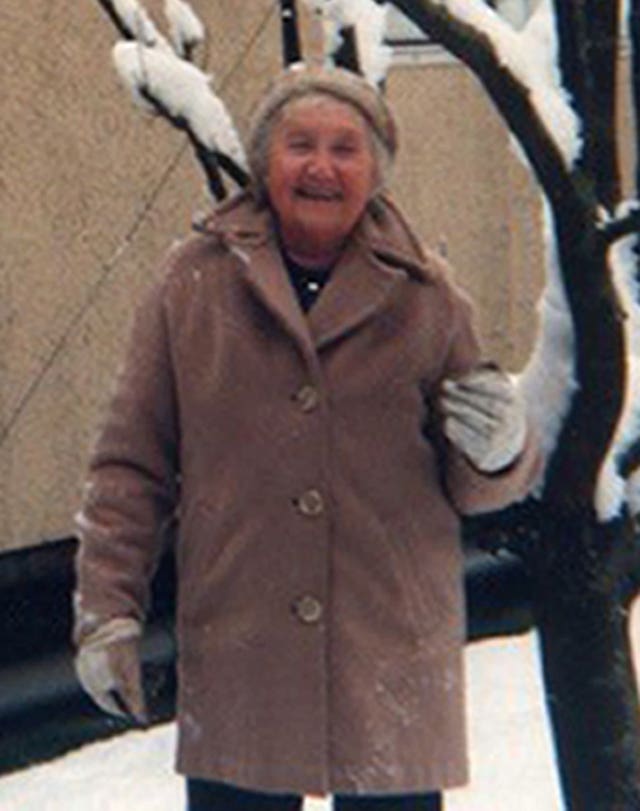A police force that first investigated deaths at a scandal-hit hospital has been ordered to carry out an inquiry into complaints of corruption as new inquests are opened into four deaths dating back more than 20 years.
Kent and Essex Serious Crime Directorate is investigating deaths at Gosport War Memorial Hospital in the 1990s.
The investigation was launched into the Hampshire unit after an inquiry found that hundreds of patients had their lives shortened through the use of opioids.
A short hearing was held at Portsmouth Coroner’s Court on Thursday to open inquests into the deaths of Dulcie Middleton, Horace Smith, Eva Page and Clifford Houghton, which date back to the late 1990s, following requests from their families.

It emerged at the hearing that the Independent Office for Police Conduct (IOPC) had been contacted by relatives after Hampshire Constabulary, which first investigated the hospital, declined to probe accusations against the force of corruption.
A spokesman for the IOPC confirmed it had asked the Hampshire force to look again at the allegations and carry out a complaints procedure.
David Wilson, the nephew of Ms Middleton, asked the coroner if the inquests should be delayed until the completion of investigations by other agencies including the IOPC.
Coroner Chris Wilkinson replied that the police investigation is the only ongoing probe and the inquests could resume on its completion.
The IOPC spokesman said: “From December 2020 to March 2021 several requests for reviews were received from 12 complainants concerning allegations of corruption relating to Hampshire Constabulary’s criminal investigation of deaths at Gosport War Memorial Hospital between 1987 and 2001.
“The reviews were against the outcome of the force’s handling of complaints stemming from the Gosport Independent Panel (GIP) report into the deaths, released in 2018.
“The force determined that there were no additional conduct matters or criminal allegations that required investigation.
“Following the reviews we have upheld each case on the grounds that the outcomes provided by the force were not reasonable and proportionate.
“This was mainly due to insufficient rationale and relevant information being given to the complainants to understand how decisions had been reached.
“We have now told the force a complaint investigation is required and they should provide the complainants with enough information to explain what inquiries have been carried out and how they reached their conclusions.
“During this process, if there are any matters that have not been previously dealt with, Hampshire Constabulary should appropriately consider and seek to resolve those matters.
“Upon conclusion of this work, a fresh right of review to the IOPC will be provided to the complainants.”
A Hampshire police spokesman said: “We have just received a response from the IOPC. This is clear that we need to explain our decisions better.
“They have asked us to explain our rationale more clearly and to share more information with the complainants. It is our intention to do that.”
The new inquests will look at the death of 71-year-old Mr Houghton after he was admitted to the hospital in February 1994 for a period of respite.
He died on the day he was given two doses of diamorphine because of “deterioration”, and the 2018 review panel concluded that he was given opioids without appropriate clinical indication.
His stepdaughter Pamela Byrne believes there is reason to suspect her stepfather died a “violent or unnatural death”.
Mrs Middleton died aged 86 in September 2001, three months after she was admitted to the hospital for rehabilitation following a stroke.
Her nephew David Wilson and daughter Marjorie Bulbeck say Mrs Middleton’s treatment at the hospital was “neglectful and inhumane, she was not assisted with food and became dehydrated and was denied basic nursing care”.

Ms Page, 88, died in March 1998 and the GIP report concluded her death was a case of opioid usage without appropriate clinical indication.
Mr Smith, 73, died in April 1999 after his condition had been said to be improving, although he was subsequently prescribed diamorphine.
Emma Jones, partner at Leigh Day, representing the families, said: “We hope this will be the start of a complete, honest, open and thorough investigation into what happened to individuals at Gosport War Memorial Hospital.”
More than 450 people had their lives shortened at the hospital while another 200 were “probably” similarly given opioids between 1989 and 2000 without medical justification, according to the GIP report released in 2018.
The report said there was “a disregard for human life and a culture of shortening lives of a large number of patients” at the hospital.




Comments: Our rules
We want our comments to be a lively and valuable part of our community - a place where readers can debate and engage with the most important local issues. The ability to comment on our stories is a privilege, not a right, however, and that privilege may be withdrawn if it is abused or misused.
Please report any comments that break our rules.
Read the rules here